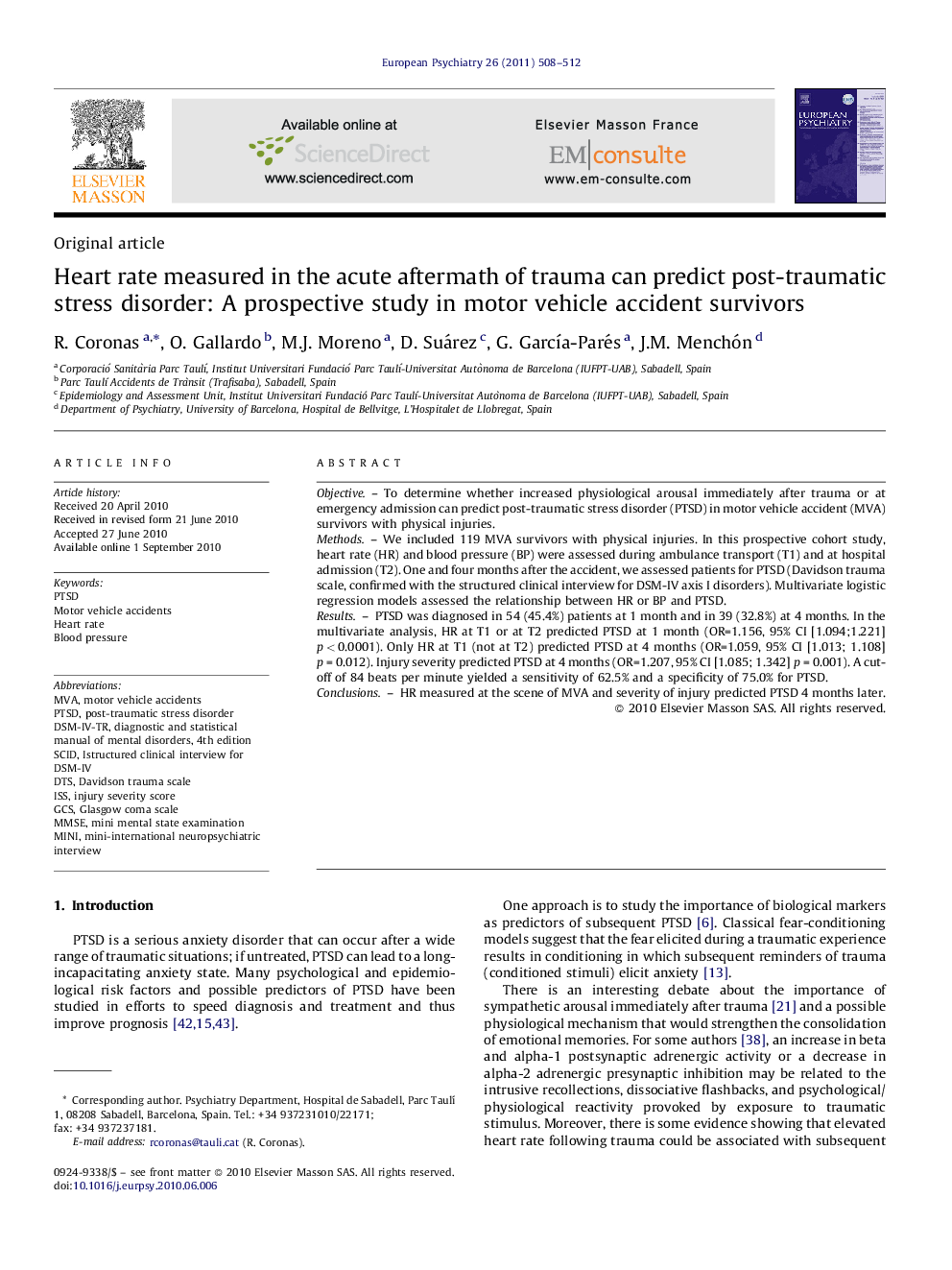| کد مقاله | کد نشریه | سال انتشار | مقاله انگلیسی | نسخه تمام متن |
|---|---|---|---|---|
| 4184858 | 1277329 | 2011 | 5 صفحه PDF | دانلود رایگان |

ObjectiveTo determine whether increased physiological arousal immediately after trauma or at emergency admission can predict post-traumatic stress disorder (PTSD) in motor vehicle accident (MVA) survivors with physical injuries.MethodsWe included 119 MVA survivors with physical injuries. In this prospective cohort study, heart rate (HR) and blood pressure (BP) were assessed during ambulance transport (T1) and at hospital admission (T2). One and four months after the accident, we assessed patients for PTSD (Davidson trauma scale, confirmed with the structured clinical interview for DSM-IV axis I disorders). Multivariate logistic regression models assessed the relationship between HR or BP and PTSD.ResultsPTSD was diagnosed in 54 (45.4%) patients at 1 month and in 39 (32.8%) at 4 months. In the multivariate analysis, HR at T1 or at T2 predicted PTSD at 1 month (OR=1.156, 95% CI [1.094;1.221] p < 0.0001). Only HR at T1 (not at T2) predicted PTSD at 4 months (OR=1.059, 95% CI [1.013; 1.108] p = 0.012). Injury severity predicted PTSD at 4 months (OR=1.207, 95% CI [1.085; 1.342] p = 0.001). A cut-off of 84 beats per minute yielded a sensitivity of 62.5% and a specificity of 75.0% for PTSD.ConclusionsHR measured at the scene of MVA and severity of injury predicted PTSD 4 months later.
Journal: European Psychiatry - Volume 26, Issue 8, November 2011, Pages 508–512